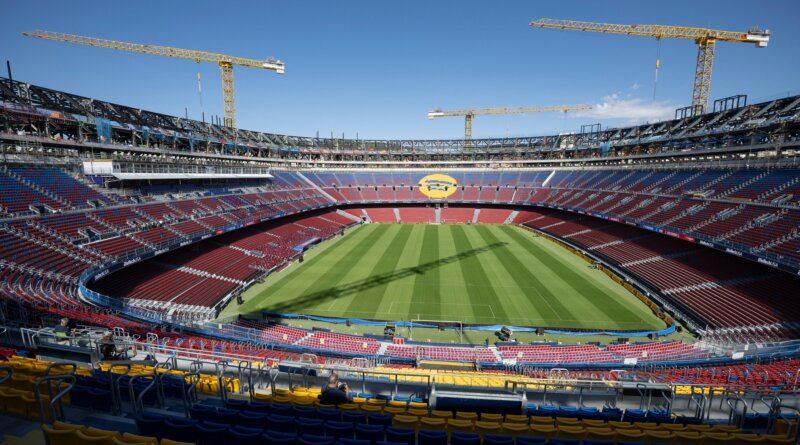Barcelona Camp Nou Delays Drive Up Montjuic Stadium Costs
Barcelona Camp Nou delays have placed a significant financial strain on the club, forcing Barcelona to play home matches at Montjuic Stadium and pay a steep price for each game.
Barcelona Camp Nou Delays: The Financial Impact of Montjuic Stadium
Barcelona Camp Nou delays have proven to be more than just an inconvenience for Spain’s footballing giants. The ongoing renovation and reconstruction of their iconic stadium has compelled Barcelona to relocate their home fixtures to the Estadi Olímpic Lluís Companys—commonly known as Montjuic Stadium. However, this temporary move has come at a premium cost, adding further challenges to a club already grappling with complex financial realities.
How Much Does Barcelona Pay for Montjuic Stadium?
According to institutional vice-president Elena Fort, each home match at Montjuic Stadium comes with a hefty price tag. While the exact figure remains undisclosed, sources within the club have indicated that the cost per fixture is substantially higher than at Camp Nou. Factors such as rental fees, logistical expenses, and the need for additional security and infrastructure contribute to the mounting costs.
The club’s leadership has been transparent in acknowledging the financial burden. Fort recently explained that Barcelona is actively managing these expenses while awaiting the long-anticipated reopening of Camp Nou. The delays are attributed to the scale and complexity of the stadium renovations, involving both structural upgrades and modernizations designed to ensure Camp Nou remains a world-class venue.
Why the Camp Nou Delays Are Costing Barcelona Big
The Camp Nou delays are not just a logistical headache—they are a direct hit to Barcelona’s bottom line. With Montjuic Stadium offering fewer seats and limited facilities compared to Camp Nou, the club is losing out on potential revenue from ticket sales, hospitality, and merchandise. This shortfall, combined with the elevated matchday expenses, amplifies the financial strain.
Barcelona’s situation is further complicated by the ongoing need to compete at the highest level, both in La Liga and European competitions. The inability to use their historic home ground has also presented challenges for fans, some of whom find Montjuic less accessible and less atmospheric than Camp Nou.
Long-Term Implications for the Club
For a club already under scrutiny for its financial management in recent years, these additional costs could have long-term implications. The hope is that investing in Camp Nou’s upgrade will yield dividends in terms of increased matchday revenue and a rejuvenated fan experience once the stadium is complete. Still, each month of delay chips away at the club’s financial stability, making prudent financial planning paramount.
Barcelona’s Response and Strategic Adjustments
Barcelona’s executive team, led by Elena Fort, has implemented a series of measures to manage costs while continuing to deliver a top-tier football experience. These include renegotiating some aspects of the Montjuic Stadium agreement and exploring new commercial opportunities to offset the higher overheads. Additionally, the club has turned to its loyal supporters and local community, emphasizing the temporary nature of this move and rallying them behind the ongoing redevelopment project.
For more updates on this story and the latest developments in the world of football, visit for more news.
Opinion: A Necessary Sacrifice for Future Success
While the financial burden of playing at Montjuic Stadium is undeniable, Barcelona’s leadership has little choice but to weather this storm. The Camp Nou delays are a painful but necessary step toward a more sustainable and exciting future for the club. Ultimately, if the redevelopment delivers on its promise, the short-term sacrifices could pave the way for long-term gains—both on and off the pitch.
Your global gateway to nonstop football coverage:
News Goal
Share this content:
